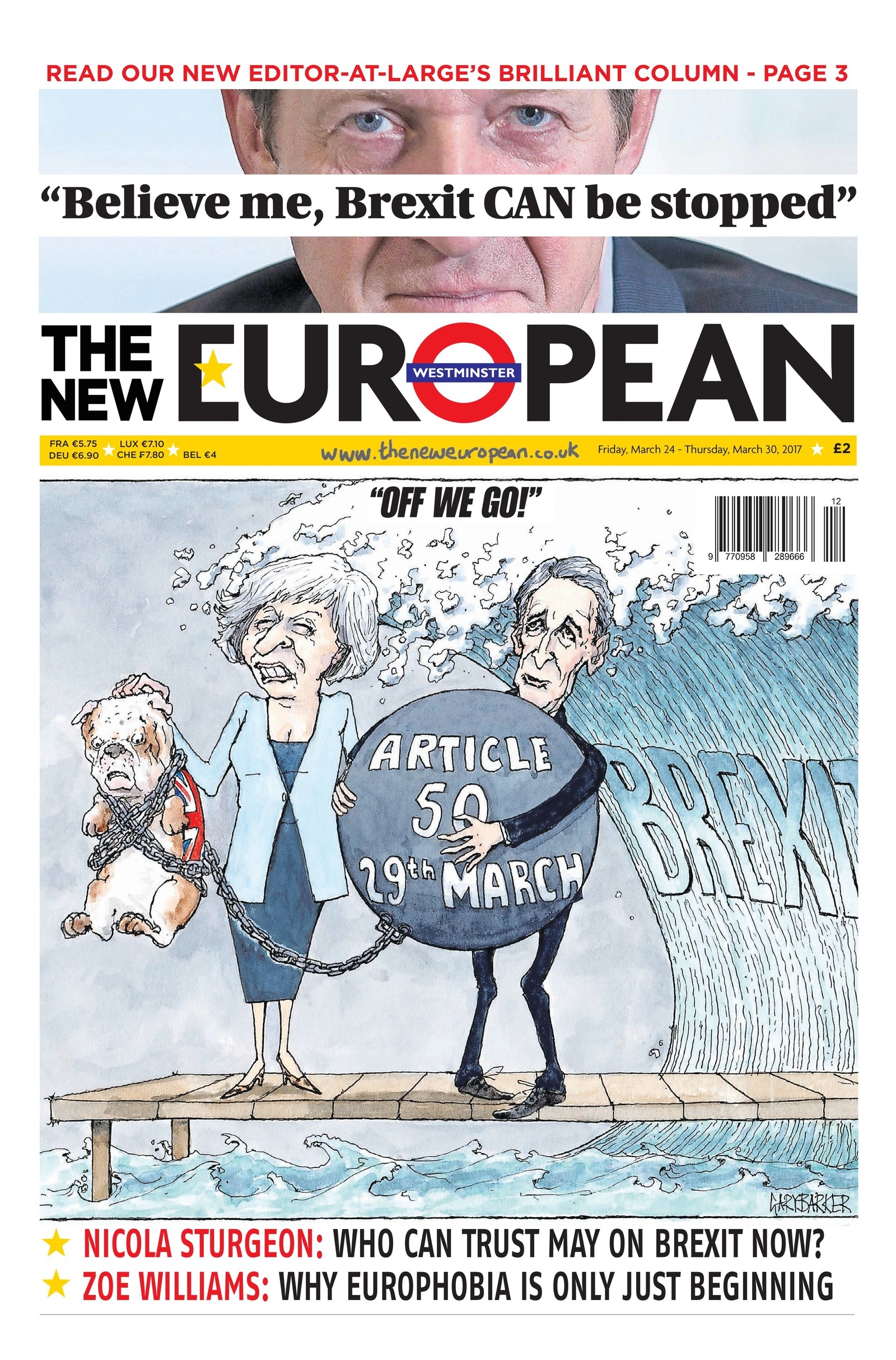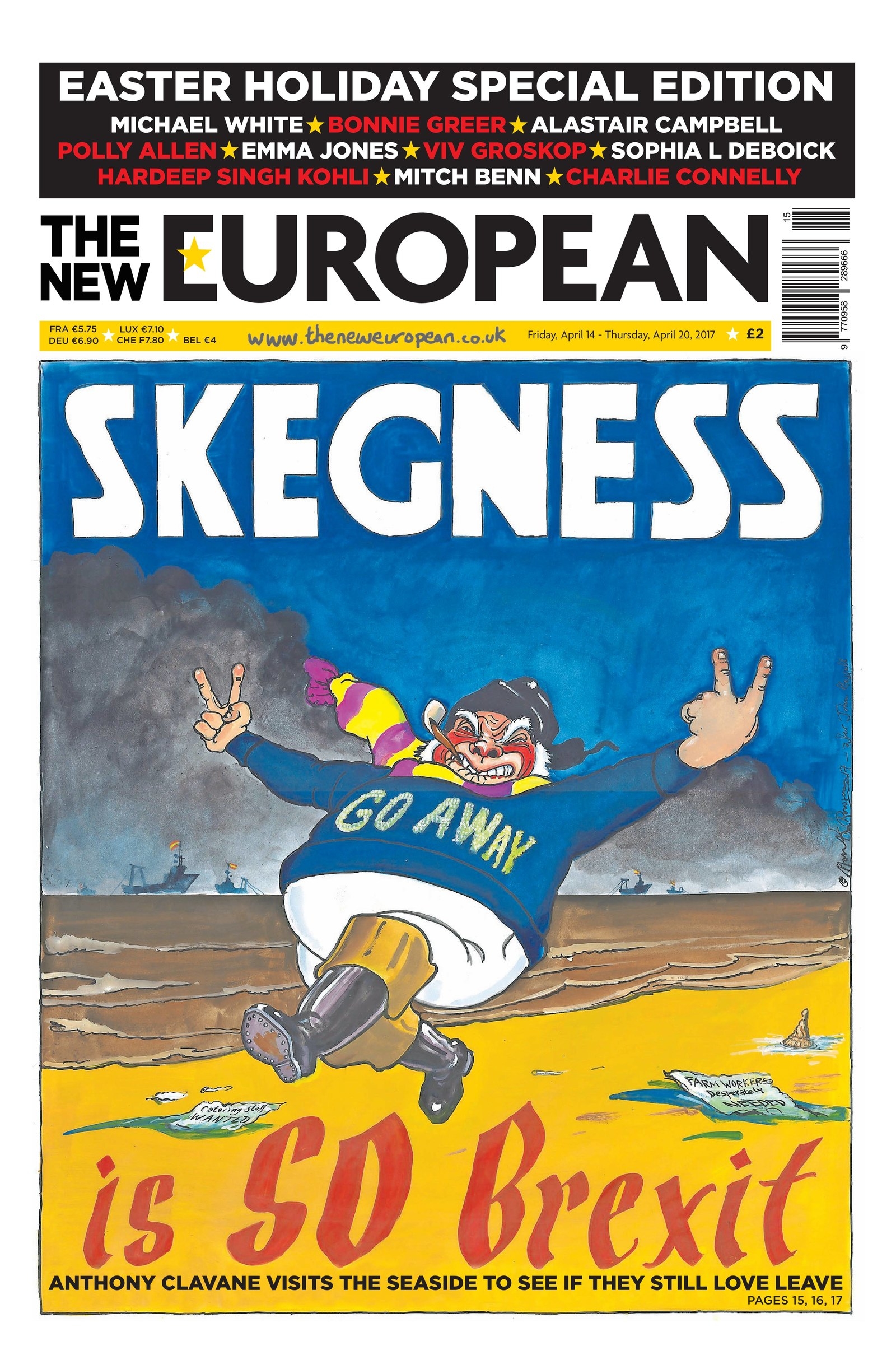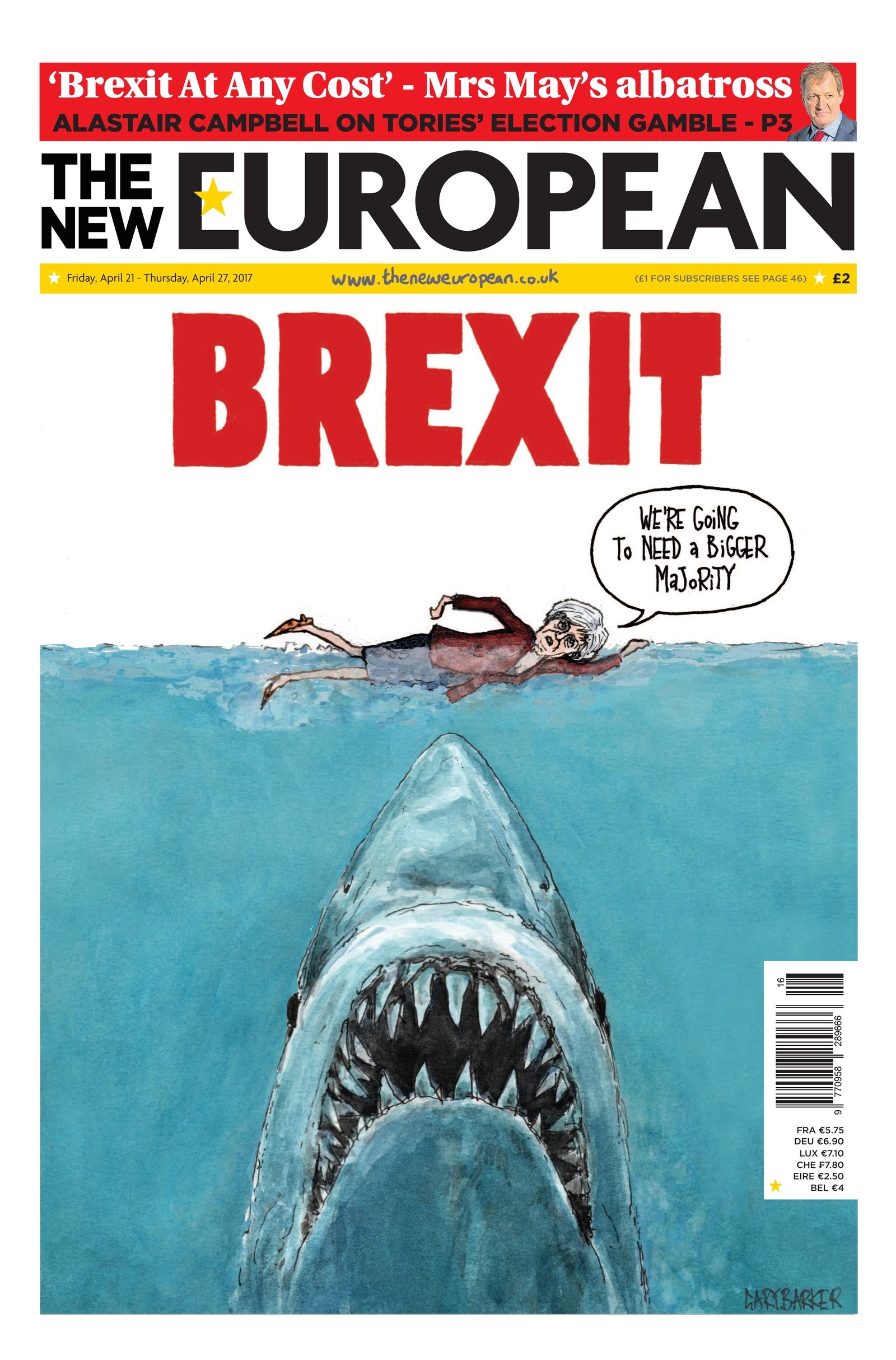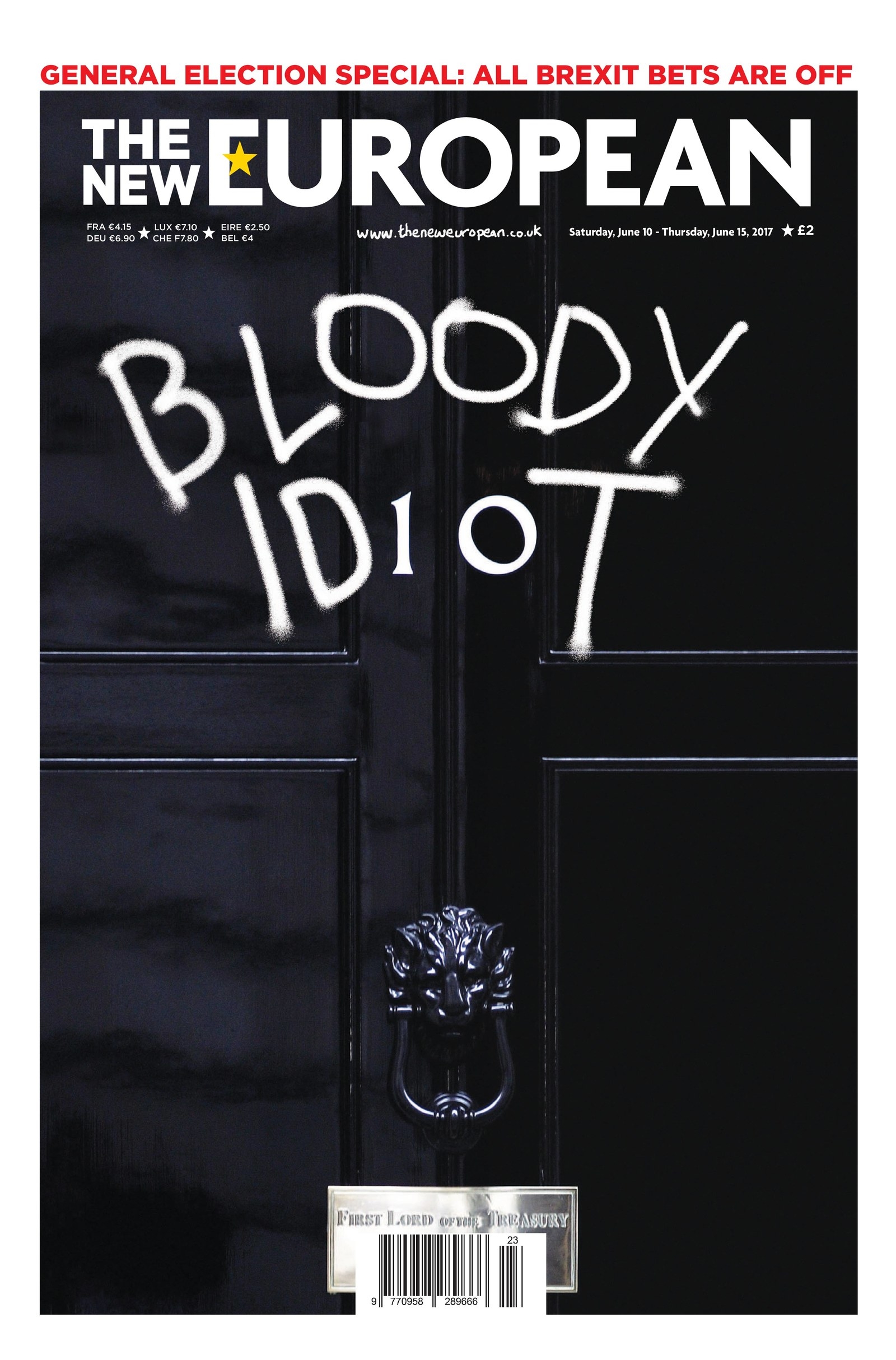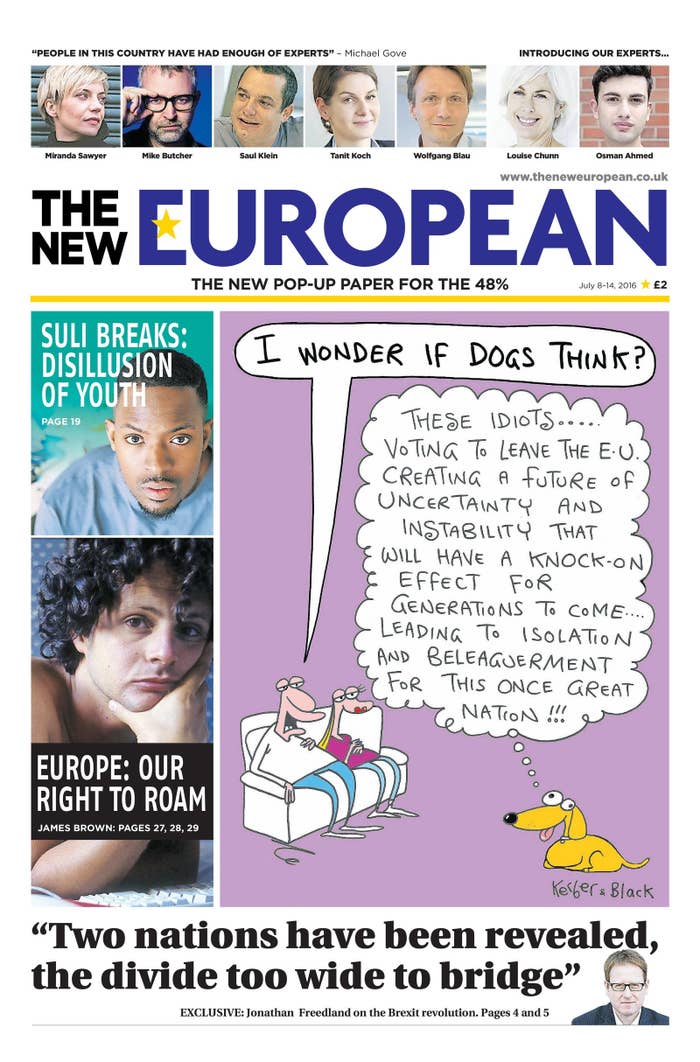
Matt Kelly wasn't the only one who didn't think his newspaper would last more than four weeks.
The editor of the New European launched it as a temporary "pop-up" project in the days after the EU referendum to capitalise on increased political awareness – and despair – among Remain voters.
But now, exactly 12 months on and with Brexit negotiations underway, the paper is still here. Without much by way of a social media presence or digital strategy, the paper sells 25,000 copies a week and has won various publishing awards.
"I genuinely thought it would go on for four weeks," says Kelly, a former Daily Mirror journalist and Trinity Mirror executive, who in 2015 became chief content officer at local newspaper company Archant, which publishes the New European.
"The happiest moment in my career and probably the happiest moment of my life outside of seeing my three kids born was getting the email to tell me the first circulation figures, which was 40,000. I was walking down the Embankment and I jumped up and yelped embarrassingly.
"We’ve been lucky that we happened to stick ourselves into the most tumultuous period in British politics probably ever."
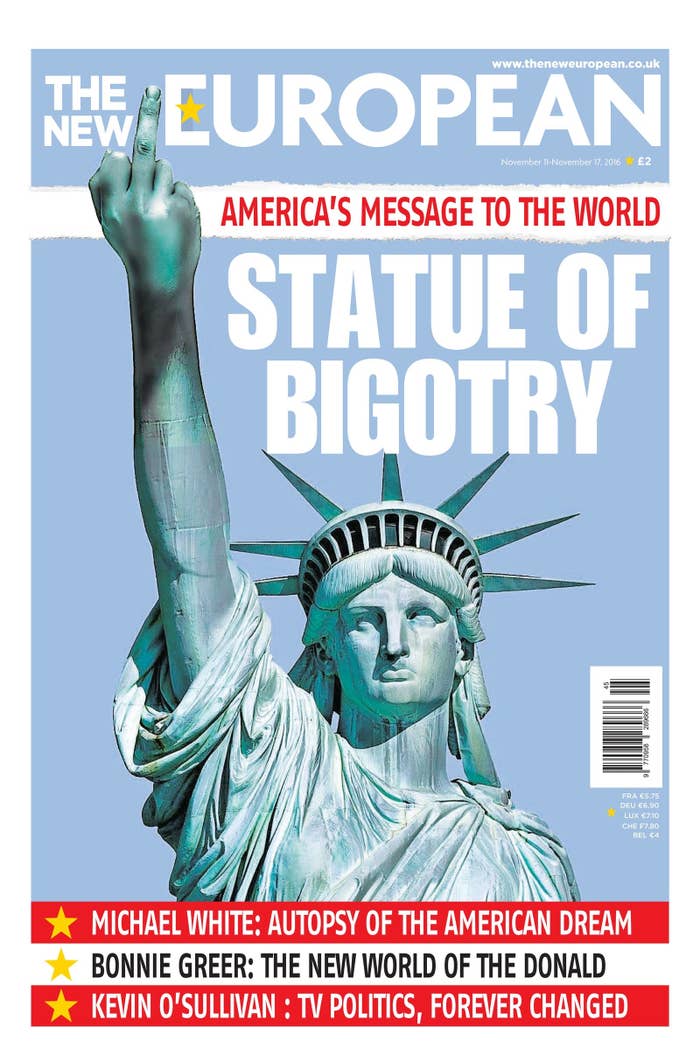
The British press is dominated by papers that promote conservative values. The most popular ones, such as the Daily Mail and The Sun, overwhelmingly backed Brexit. The New European's stance, which is unashamedly and unapologetically anti-Brexit, makes it unique.
The paper's tagline is "We are the 48%." A piece by its editor-at-large and regular contributor Alastair Campbell was trailed on the front page with the headline: "Believe me – Brexit CAN be stopped."
This is not a title designed to win over Daily Telegraph readers.
"We're very clear in our belief that the only good Brexit is no Brexit is because we’re not fearful of our readers," says Kelly. "I think every other mainstream media [outlet] is very mindful of the fact that their audience is very divided. Our audience isn’t – it’s 100% against Brexit.
"It’s actually very easy for me to be as bold as we are – I’m in no danger of pissing anyone off. But it’s also a sincerely held position: Our premise is that Brexit is bad for this country and we want to do everything we can to enlighten people and to stop it."

It makes sense that an anti-Brexit paper can find an audience, but some might consider launching a printed newspaper in the age of Facebook and Snapchat to be at best a risky endeavor and at worst a nostalgic throwback.
The Reuters Institute for the Study of Journalism at the University of Oxford said in its annual media trends study this year that "in almost all countries more people
now rely on social media as a source of news than printed newspapers."
Trinity Mirror's ill-fated mid-market daily, New Day, the last national newspaper to launch, lasted two months. Trinity had set a break-even target of 200,000 sales a day; by the end it was reportedly selling as little as 30,000. The New European, by contrast, had a far lower break-even target – and a far smaller print run on launch.
In the latest national newspaper circulation figures, covering May, only two out of 22 paid-for titles posted a year-on-year increase.
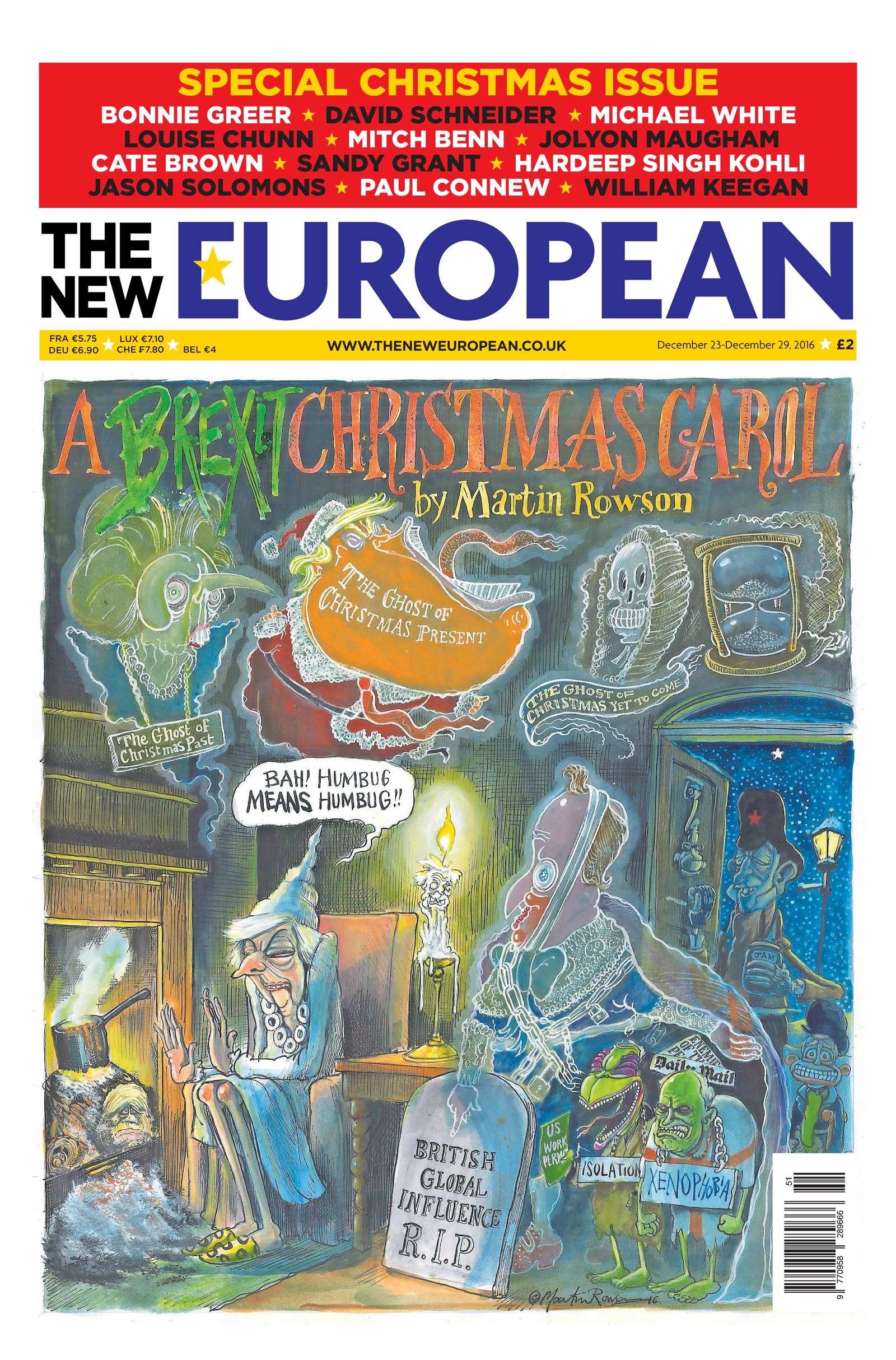
But Kelly says the New European has worked because the team didn't think too much about what readers wanted.
"There are a number of factors. One is that we launched it very quickly and we didn’t talk ourselves out of a great idea, which I think a lot of people do. A lot of newspapers focus-group things to death but we've never done that.
"If I was being critical I would say the fact that we’re only selling between 20,000 and 25,000 a week is a massive failure because the market is 16 million people. We should be much more mainstream than we are but we’ll get there, we’re on an upward tick."
The launch team debated whether a £2 cover price was too much, but Kelly was confident it wasn't too high.
"I wish I had set it at a fiver, to be honest. I think we priced it too low. Newspapers in this country are generally too cheap," he says.
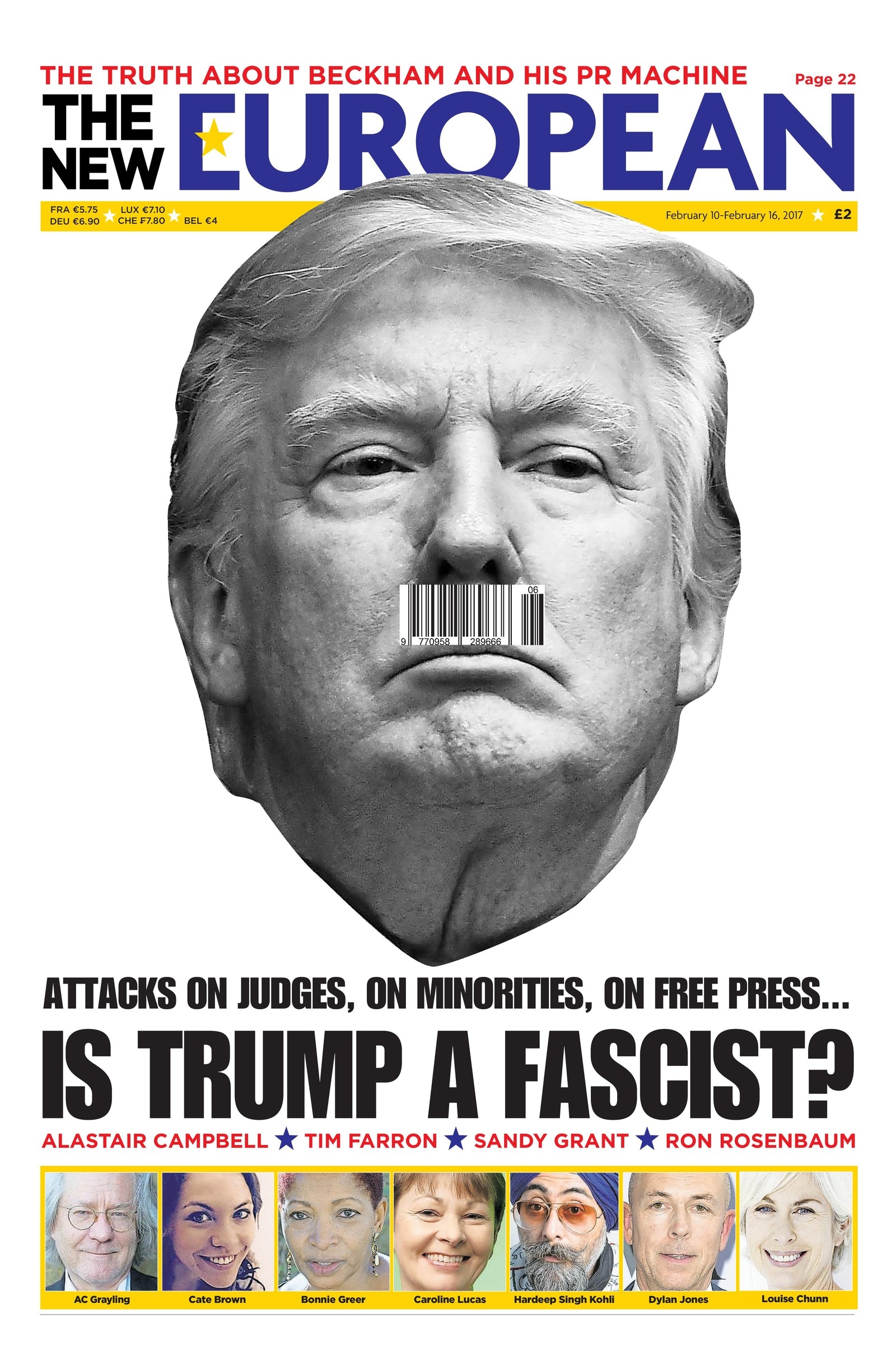
Kelly recognises the good fortune of launching during the most tumultuous period in modern British politics. And he's keen to stress that the paper doesn't just cover Brexit.
"Beating people about the head about Brexit is not a sustainable strategy for anyone, so we’ve talked about Aleppo, the NHS, Donald Trump; this week we talked about austerity and Grenfell Tower.
"But we never get away from our USP, which is that we’re the anti-Brexit paper. And there’s plenty of people out there who feel the same as we do."
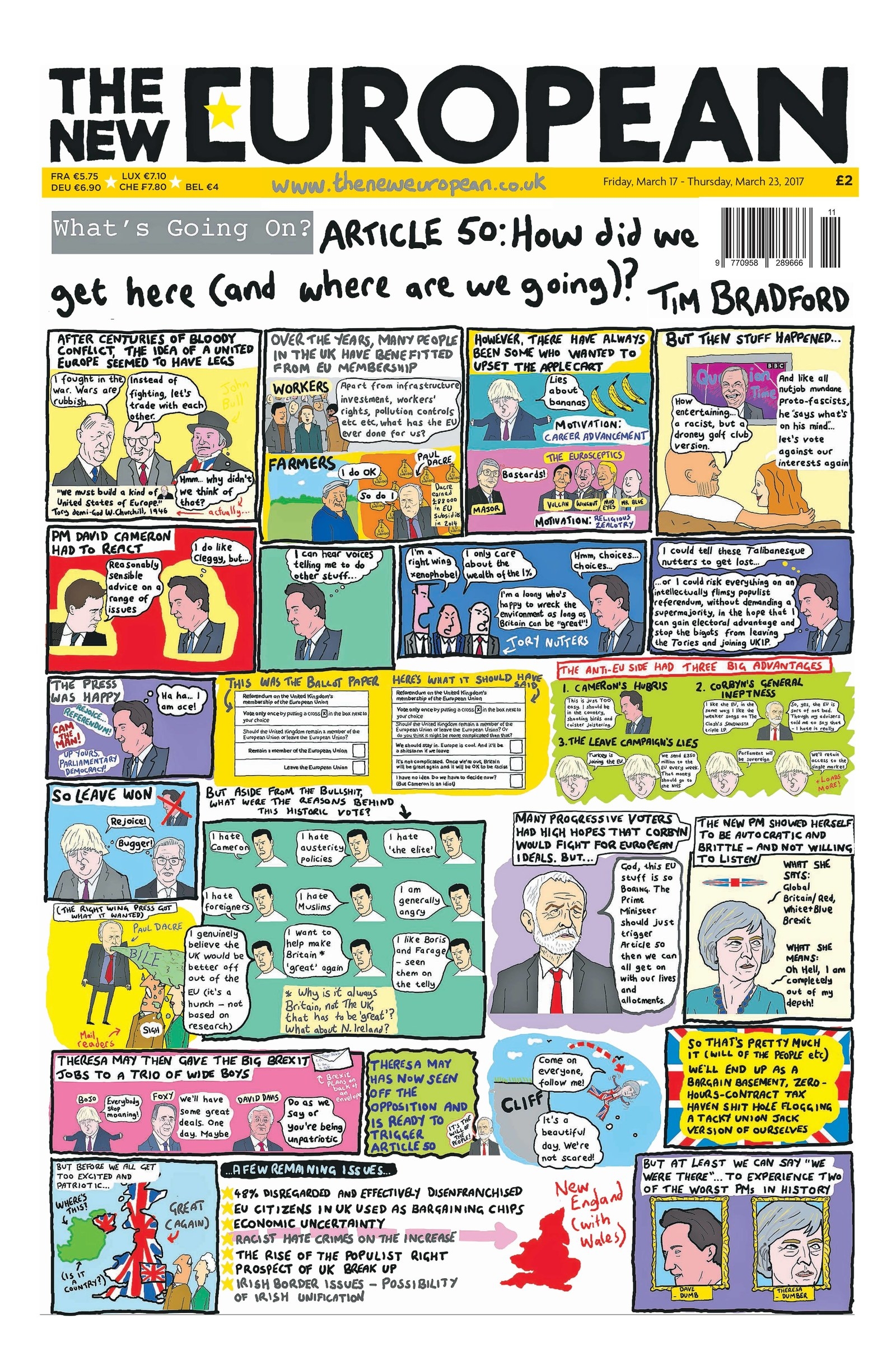
So how long can the paper last?
"I’d love there to be at some stage a second editor of the paper, that would be great. That would be successful, and we would have become sustainable in the way the New Statesman or The Spectator is.
"That’s a potentially lucrative market and some of the incumbents look a little bit tired and weary sometimes. So I think a fresh new alternative voice is what the New European can be."
